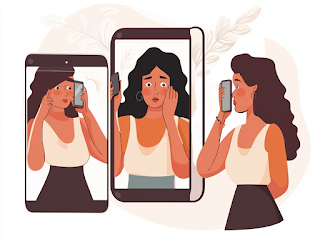 |
| The Cost of Survival: Living with Bipolar Disorder in a World Where Rent Comes First |
Choosing Between Recovery and Rent
I lay strapped to a hospital bed in the Psychiatric Intensive Care Unit (PICU), cut off from the outside world. I didn’t know the day or time until meals arrived, each tray accompanied by a slip of paper telling me my name, location, and menu. Only then did I have any clue what might be happening beyond the cinder-block walls. When psychosis had me in its grip, nothing mattered beyond my next manic thought.
As my mind slowly cleared, I realized life outside had kept moving. Bills still needed paying. Rent was still due. Bipolar disorder demands consistency—structure, routine, and healthy habits can mean the difference between stability and relapse. But when a severe episode leads to long-term hospitalization, maintaining financial consistency becomes nearly impossible.
This is the reality for many living with chronic mental health conditions: the rising cost of housing compounds the struggle to recover. Financial stress and mental health are deeply intertwined.
The Unseen Price Tag of Stability
There’s an invisible cost to stability that many in mental health crises can’t afford. I’ve been fortunate to have the support of family, friends, my mental health mentor Grama Judie, and the income from work during periods of wellness. Others aren’t so lucky.
For many, the choice comes down to paying rent or buying medication. The cost of living—and managing bipolar disorder—rises each year. Private therapy, even on a sliding scale, can be out of reach. Virtual sessions still carry a fee. Add in the cost of transit, gas, and basic necessities, and the expenses pile up.
Living with bipolar disorder often means an inconsistent work history, making income unpredictable. Missed bills, partial payments, or skipped rent become common. The emotional toll—shame, guilt, anxiety—feeds a survivalist mindset where thriving feels impossible. Even when stability returns, another episode may be waiting to unravel it all.
Budgeting While Battling Bipolar
Budgeting with bipolar disorder isn’t just about money—it’s a mental health tool. Cognitive fog during depression can make bill-paying overwhelming. If possible, set up automated payments for essentials like rent, insurance, and utilities before a crisis hits.
For me, mania has led to impulsive spending followed by guilt and anxiety. To counter this, I automate bill payments at the start of the month and move a small “mania spending” budget into a separate account. My mentor acts as my financial accountability partner.
Living on a low income with bipolar disorder is challenging, but not impossible. Create a budget based on guaranteed income, manage supplemental income cautiously, and consider strategies like:
Separate savings accounts not tied to debit cards
“Cash life” budgeting for groceries, gas, and personal spending
Early payment of recurring bills
Survival mode won’t last forever. Structure, routine, and healthy habits around money can lead to both personal and financial growth.
Traditional Homes, Unreachable Dreams
Transitional housing has become a lifeline for many with severe mental illness, especially when hospital discharge is delayed due to homelessness, lack of family support, or loss of income. But the dream of stable, traditional housing often fades in the face of gentrification, rising rents, and strict lease requirements.
Since age 24, I’ve relied briefly on family for housing stability, but have mostly lived in basement apartments, community housing, rent-geared-to-income units, Airbnbs, shelters, and now a transitional home. These weren’t the homes I imagined while working toward my degree in the early 2000s. After my diagnosis, I found myself chasing stability in places where mental health stigma made renting difficult, often trading safety for affordability.
Eventually, transitional housing became the goal—traditional housing, the dream. Even now, in a stable program with potential for permanency, I know the decision to keep me here isn’t mine. By definition, transitional programs are temporary. I could be moved at any time, forced to rebuild the stability I’ve worked years to create.
For many living with bipolar disorder, housing instability is not a temporary setback—it’s a recurring reality.
Final Thoughts — Health vs. Housing: Why Should We Have to Choose?
How do you choose between mental health stability and housing security? There’s no justice in that choice. As the World Health Organization reminds us, “mental health is health.” Without mental stability, even securing a roof over your head becomes nearly impossible.
Safe, stable housing is essential to recovery. It provides space for rest, healing, self-reflection, and planning. Without it, recovery from bipolar disorder, trauma, or addiction becomes far harder—and communities feel the ripple effects. It’s a domino effect of impossible choices and unnecessary sacrifices.
Recovery requires rest. Rest requires security. I’ve lived both realities—housing stability and housing insecurity. Remission isn’t a choice; it’s a necessity. Stability makes it possible, and for too many, it remains out of reach.
To my readers: Have you ever felt like you were trading peace of mind just to stay housed? What does security mean to you when the basics feel so far away?



.png)